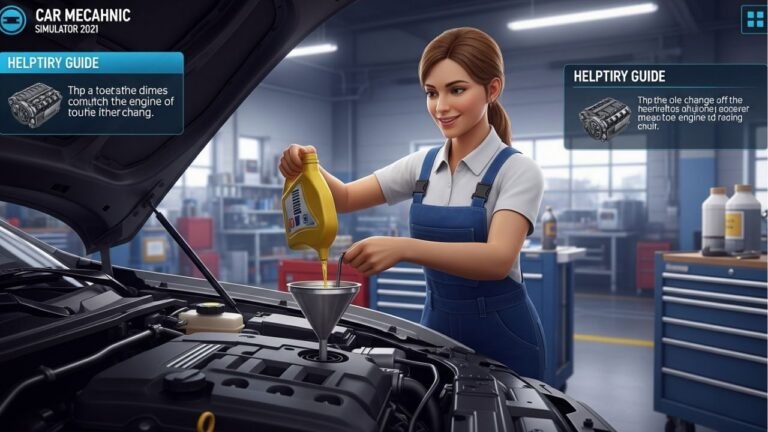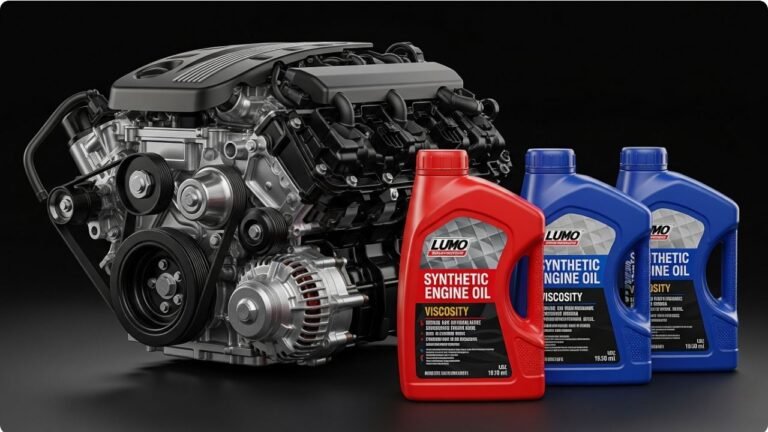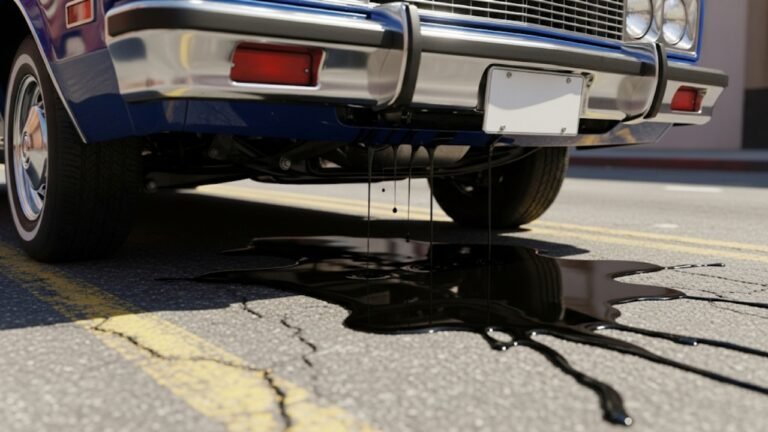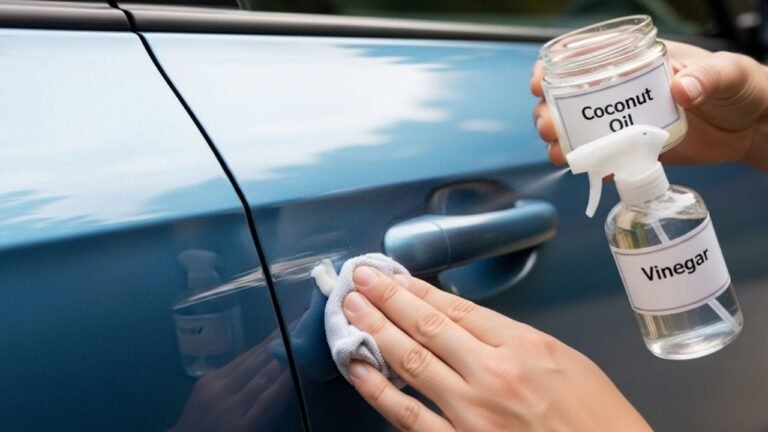Can a Car Start with No Oil? The Truth

Let’s face it — we’ve all had car trouble at the worst possible time. But here’s a question that sends shivers down every driver’s spine: can a car start with no oil?
That tiny question packs a heavy punch. Whether you’re a new driver or a seasoned gearhead, knowing the answer could save you thousands in repairs or even your engine. It sounds like something from a late-night horror story for car lovers — turning your key, the engine roars to life… only to die a slow, metallic death minutes later.
In this article, we’re diving deep into what really happens when your engine runs dry. I’ll share real-life stories, basic science, and expert advice so you can understand the risks, avoid costly mistakes, and take better care of your car.
Let’s pop the hood and get started.
Can a Car Start with No Oil? The Simple Answer
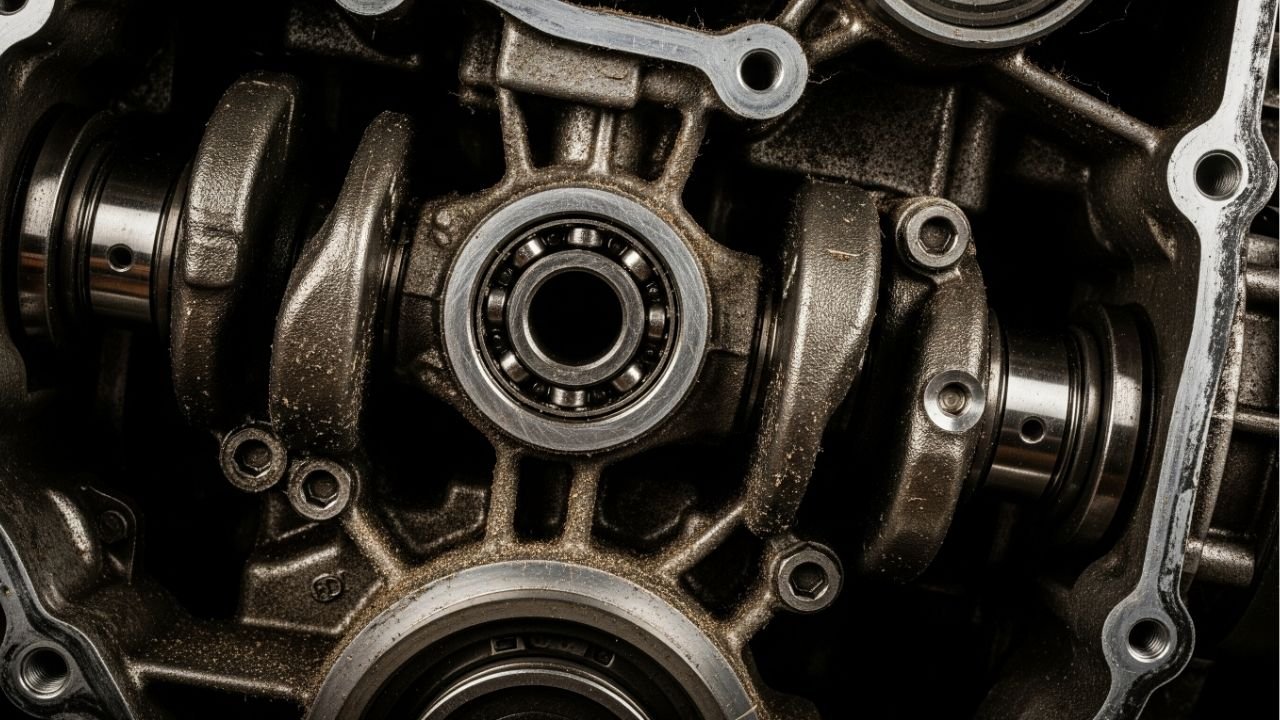
Your car can start with no oil, at least for a few seconds. It might crank, rumble, and even rev. But without oil, metal grinds against metal. There’s no protection. No buffer. It’s like trying to sprint barefoot across hot gravel — painful and damaging from the get-go.
I remember once helping a friend whose car had an oil leak. We topped it off often, but one day, it was bone dry. Just out of curiosity (and youthful foolishness), we started the engine. It ran. For about 40 seconds. Then came a screeching noise — and that was it. The engine seized. Completely.
Let that be your first clue: just because it starts doesn’t mean it should.
Why Oil Is the Lifeblood of Your Engine
Think of motor oil like blood in your veins. It flows through every critical part of the engine — the pistons, crankshaft, camshaft, and valves. Without it, the heat builds fast. Friction takes over. Metal gets scorched.
Here’s what engine oil really does:
-
Lubricates moving parts – reducing wear
-
Cools components – heat from combustion is intense
-
Cleans debris – carries away gunk and particles
-
Prevents rust – forms a protective coating
Without it? You’re just burning your engine alive.
Table: What Happens When a Car Runs Without Oil
| Time Without Oil | What Happens | Damage Risk Level |
|---|---|---|
| 0–30 seconds | Engine may start, minor knocking sounds | Low |
| 30–60 seconds | Parts heat up fast, screeching noises | Moderate |
| 1–2 minutes | Metal starts fusing, engine begins to seize | High |
| 3+ minutes | Full engine failure, car shuts down | Critical |
Even one minute is enough to do damage you can’t undo without a rebuild or replacement.
Real Talk: Can You Drive a Car with No Oil?
Short answer: Absolutely not. You might move a few feet or maybe even a block, but you’re damaging the heart of your vehicle every second. It’s like walking a tightrope without a net — one slip, and it’s over.
A friend of mine tried to drive “just a mile” without oil after draining it during a change. He thought, “What could go wrong?” Everything. The repair cost him over $3,500. A full engine swap. Just because he skipped one step.
So, can a car start with no oil? Technically yes. But should you drive it? Never.
How to Know If Your Car Has No Oil
Here are signs that your engine is dangerously low or completely dry:
-
Oil warning light is on
-
Burning smell under the hood
-
Loud knocking or clanking sounds
-
Engine feels hot or overheats fast
-
Dipstick shows no oil or sludge
Don’t rely just on dashboard lights. Get in the habit of checking your dipstick — it’s the simplest five-second check that can save your engine’s life.
Bullet Points: Reasons Cars Lose Oil Without You Noticing
-
Oil leaks from gaskets or seals
-
Burning oil due to worn piston rings
-
Faulty oil filter causing slow leaks
-
Improper oil change (not tightening the drain plug)
-
High mileage engines using more oil naturally
Just because you filled it last month doesn’t mean it’s still there today.
Emotional Insight: The Guilt of Engine Failure
There’s nothing worse than hearing that thunk-thunk-screech sound and knowing it’s your fault. It feels like betrayal — you trusted your car, and it trusted you to keep it running. I’ve seen grown men slump in silence when told they needed a new engine just because they ignored an oil warning light.
That’s why understanding the importance of oil isn’t just for mechanics — it’s for anyone who owns a car.
The Science of Why an Engine Needs Oil to Survive
Engines are made of hundreds of parts that move fast — up to 3,000 revolutions per minute. Without motor oil, all those parts rub directly against each other, producing:
-
Extreme heat
-
Friction
-
Metal flakes
-
Warping and welding
Oil is the only thing standing between your engine and total meltdown. It forms a thin film between moving parts, preventing them from grinding.
Think of it like ice skating. With ice (oil), you glide smoothly. Without it, you’re dragging your body across concrete.
Is It Ever Safe to Start a Car with No Oil Temporarily?
Only in a very controlled setting — like in a shop doing a quick engine test — and even then, for no more than 10–20 seconds. Mechanics know the risk and accept it under specific conditions. But for everyday drivers? Never worth the gamble.
Unless you’re diagnosing something with a fresh engine or during a rebuild, there’s no practical reason to test this.
How to Check and Add Oil Like a Pro (Even if You’re Not One)
Checking your oil isn’t just for mechanics — it’s as easy as making tea. In fact, it’s something every driver should do at least once a month or before a long trip. Here’s how you can check and add oil without breaking a sweat:
Step-by-Step to Check Engine Oil:
-
Park on level ground.
Always park flat to get an accurate reading. -
Turn off the engine.
Wait at least 5 minutes for oil to settle. -
Pull out the dipstick.
Wipe it clean with a tissue or cloth. -
Reinsert it fully, then pull it out again.
Now look at the oil level. -
Check color and texture.
Fresh oil is amber and smooth. Black or gritty oil needs changing. -
If low, add oil.
Use a funnel to avoid spills. Pour slowly and re-check until the level is right.
Pro Tip: Use the oil type recommended in your owner’s manual. The wrong oil can do more harm than good.
Myths About Oil and Engine Starts (Debunked)
Let’s clear up a few tall tales floating around:
-
“If the car starts, the oil must be fine.”
False. It might start, but it won’t last long. -
“Synthetic oil means you don’t have to check as often.”
Nope. Even synthetic oil burns or leaks in some engines. -
“You can drive a few miles without oil.”
Don’t believe this one. Damage starts almost immediately. -
“Electric cars don’t need oil.”
Mostly true. EVs don’t have a traditional engine, but hybrids and components like gearboxes still may need lubrication. -
“Adding more oil will fix noise issues.”
Not always. If the damage is done, it’s too late. Oil can’t undo engine wear.
How to Prevent Ever Running Out of Oil
Prevention is your cheapest insurance. Here’s what to do:
-
Check oil monthly.
-
Monitor for drips or stains where you park.
-
Follow oil change intervals – every 3,000–7,000 miles depending on your car and oil type.
-
Watch your dashboard lights.
-
Listen to your car. Unusual knocks or burning smells are red flags.
-
Keep spare oil in your trunk, just in case.
Oil isn’t just maintenance — it’s a lifesaver. Treat it like one.
Emotional Takeaway: You and Your Car Deserve Better
Owning a car isn’t just about transportation — it’s trust. It’s freedom. It’s part of our everyday life.
Ignoring oil is like ignoring your own health. Sure, you might feel fine for a bit. But deep down, there’s damage brewing. And when it hits, it’s costly — not just in money, but in stress, time, and heartache.
Imagine driving to your dream job interview, then breaking down halfway. Or missing your child’s school event. Or getting stranded in the rain. All because you skipped one simple check.
Can a car start with no oil? Yes.
But that doesn’t mean it should. Your car deserves better. So do you.
FAQs: Quick Answers to Big Questions
Q1: Can I add oil instead of changing it?
Yes, but it’s not a long-term fix. Topping off is okay if you’re low, but you still need regular changes to remove sludge and contaminants.
Q2: Will my engine be okay if I accidentally ran it for a few seconds with no oil?
Possibly. If it was just a few seconds and you shut it down quickly, you might be fine. But always inspect for damage or noises after.
Q3: What happens if oil light comes on while driving?
Pull over and shut the engine off immediately. It’s not a suggestion — it’s a warning of critical failure.
Q4: How much does it cost to fix an engine damaged by no oil?
Anywhere from $1,500 to over $6,000. Often, the entire engine needs to be rebuilt or replaced.
Q5: Does an oil leak mean my car has no oil?
Not necessarily, but it could get there fast. If you see spots under your car, check your dipstick daily until it’s fixed.
Q6: Can low oil cause starting issues?
Yes. If levels are critically low, the car may refuse to start or turn over slowly to protect the engine.
Q7: How often should I check my oil?
Once a month, or before any long trip. High-mileage cars may need more frequent checks.
Q8: What’s the best oil to use for older cars?
Look for high-mileage engine oil blends. They include conditioners that help seals and prevent leaks.
Final Thoughts: Be the Driver Who Cares
If you take away anything today, let it be this: Engine oil is more than just a fluid — it’s your engine’s shield, heartbeat, and therapist all in one.
So next time you hop into your car, give it a second of care. A quick oil check. A refill if needed. That tiny habit can save you thousands, protect your peace of mind, and keep your car running smooth for years.
Remember — just because your car can start with no oil, doesn’t mean it should. Take care of your car, and it will take care of you.

